MercoPress. South Atlantic News Agency
Brazil
-
Thursday, October 6th 2011 - 08:48 UTC
Brazilian president promises to boost investment with Bulgaria, her ancestral homeland
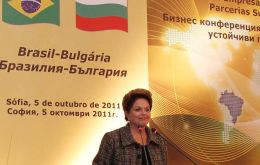
Brazilian President Dilma Rousseff pledged to raise investment in Bulgaria, her ancestral homeland, in renewable energy, aviation and the oil industry.
-
Thursday, October 6th 2011 - 05:08 UTC
Renault-Nissan plans to double production and market share in Brazil
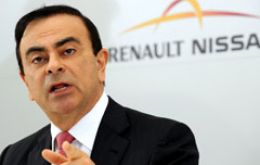
French automaker Renault will invest 285 million dollars to expand its factory in Brazil and boost production as part of a sales offensive in Latin America's largest economy, Chief Executive Carlos Ghosn announced on Wednesday.
-
Wednesday, October 5th 2011 - 16:24 UTC
Brazil wants to ban controversial ad campaign showing super model in knickers

Brazil's ministry for women has called for a TV advertising campaign showing supermodel Gisele Bundchen in just her underwear and high heels to be banned
-
Wednesday, October 5th 2011 - 08:18 UTC
Brazil with the best universities in Latam; Sao Paulo top of the list

Brazil’s Sao Paulo University, USP, ranks as the top higher education institution in Latin America according to a list published by QS, and which includes universities from Brazil, Chile, Colombia, Mexico and Argentina.
-
Wednesday, October 5th 2011 - 08:08 UTC
Latam’s largest airline merger project appeals several anti-trust conditions
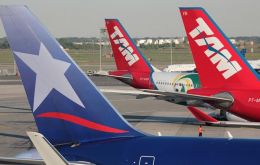
Chile's LAN Airlines and Brazilian carrier TAM have appealed to Chile's top court some of the conditions imposed on their planned merger as the companies push ahead to create one of the world's biggest airlines.
-
Tuesday, October 4th 2011 - 20:38 UTC
Weaker Real expected to bolster Brazil’s meat sector exports

A weaker Brazilian Real should give companies in Brazil's meat sector more flexibility to increase export volumes and could also provide a short-term boost to margins.
-
Tuesday, October 4th 2011 - 20:29 UTC
JP Morgan Chase forecast slower growth and lower interest rates in Brazil
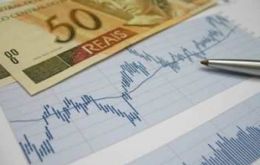
JPMorgan Chase & Co. cut its forecast for Brazil’s economic growth and said it expects the central bank to cut interest rates more than it previously expected as global financial turmoil weighs on confidence in Latin America’s biggest economy.
-
Tuesday, October 4th 2011 - 20:24 UTC
Brazil and EU call for concerted action to face current international situation

Brazil and the European Union must take concerted action to calm markets fearful of global contagion spreading from Europe's debt crisis, leaders from both sides said on Tuesday.
-
Tuesday, October 4th 2011 - 20:15 UTC
Brazil-FIFA hold a ‘positive meeting’ but negotiations are ongoing
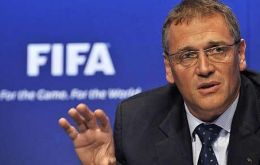
Brazilian President Dilma Rousseff had a “positive meeting” with FIFA general secretary Jerome Valcke on Monday to discuss the 2014 World Cup, Brazil's Sports Minister Orlando Silva said Tuesday.
-
Monday, October 3rd 2011 - 21:43 UTC
Overly restrictive fiscal measures unlikely to solve EU crisis, warns Rousseff
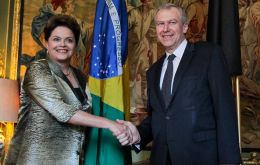
Overly restrictive fiscal measures are unlikely to solve the European Union's debt crisis, Brazilian President Dilma Rousseff said on Monday in Brussels in the sidelines of the V strategic meeting between the European Union and Brazil.
